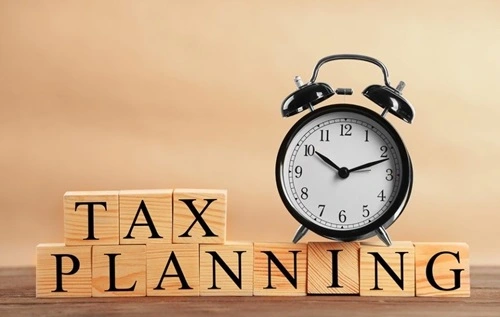Most people think about taxes only when the financial year is about to end. It’s usually a rush to find receipts, buy a quick investment product, file returns, and hope for the best. Tax planning isn’t just about saving money once a year. It’s a tool that can support your larger financial goals, whether you’re planning for retirement, your child’s education, or just looking to grow your savings efficiently. When you integrate it thoughtfully, you’re not just reducing tax but improving how your money works for you.
In this post, let’s break down how you can bring tax planning into the heart of your financial decisions.
Begin with Clear Financial Goals

Before you think about deductions or tax-saving instruments, get clarity on what you’re planning for. Are you trying to retire early? Save for a property? Build an emergency reserve?
Once your goals are clear, it’s easier to pick the right strategy. A good advisor will help you align those investments with tax-saving opportunities right from the start. This is where financial planning begins to show its value. You’re not just putting money aside. You’re choosing tools that help you move towards a defined outcome while keeping the impact of taxes low.
Select Tax-Efficient Investments
Every investment has a tax angle. Some are fully taxable, some give partial benefits, and a few offer complete tax relief. Understanding the difference can make a meaningful impact on your returns.
If you’re considering portfolio management services, it’s important to understand how capital gains from these managed portfolios will be taxed. These services can help you build a diversified portfolio, but they should also come with regular reviews on tax efficiency.
The key is to pick options that match your risk level, timeline, and tax bracket, not just one of these.
Structure Your Income and Expenses Smartly
Tax planning isn’t only about investments. How you earn and spend also affects what you owe at the end of the year.
If you’re salaried, you have options like HRA, LTA, and deductions for health insurance. If you earn rental income, you can deduct property tax and home loan interest. And if you work independently, there are business-related expenses you can claim to lower your taxable income.
Still, many people don’t track these things throughout the year. That’s where your advisor plays a big role. They’ll help you set up a simple system that records everything monthly, so you’re not unprepared in March.
Good financial planning includes not just investing wisely, but also recording and reporting your income in a way that’s legally accurate and tax-friendly.
Handle Capital Gains Carefully
Selling property, stocks, or mutual funds can create a tax bill if you’re not careful. A common issue is forgetting how capital gains are calculated or missing out on indexation benefits.
If you use portfolio management services, reviewing your gains and losses regularly becomes even more important. A good advisor may suggest strategies like tax harvesting – selling investments with gains and losses together to reduce your overall tax impact.
It’s not about avoiding taxes. It’s about managing them better through timing, structure, and smart decision-making.
Plan for Retirement with a Tax Lens
Retirement planning goes beyond building a large fund. It’s about building it the right way. If you don’t consider how your retirement income will be taxed, you may end up with less in hand than expected.
A certified advisor will help you split your retirement contributions across different products so that you get the best of both worlds – tax relief now, and smoother withdrawals later.
If your retirement plan includes mutual funds or equity investments, they’ll also guide you on how to schedule your withdrawals to keep capital gains tax to a minimum. That’s where financial planning meets long-term tax strategy, and both work better together.
Cover Insurance and Emergencies Without Overpaying
Good financial advice always includes a safety net. Health insurance, life coverage, and an emergency fund are important, but they also give you some tax relief.
Your emergency fund should also be planned with tax in mind. Fixed deposits earn interest, but that interest is taxable. Short-term debt funds or sweep-in options may work better, depending on how quickly you need access to the funds and how much interest they generate.
Your advisor’s job here isn’t just to list options. It’s to help you pick ones that support your goals without creating an unexpected tax bill.
Review Everything at Least Once a Year
Even the best plans need a review. Tax rules change. Your income changes. Maybe you’ve bought a house or started freelancing on the side. Each of these shifts your tax position.
Instead of waiting for March, plan a yearly financial review in January or February. That gives you time to make smart adjustments like topping up your PPF, making donations, or restructuring your capital gains. A review also helps you see what worked and what didn’t over the past year.
If you’re using portfolio management services like those available from major financial planning firms like Fincart, they’ll usually give you regular reports. But it’s still worth having a conversation just to make sure your tax position aligns with your broader financial direction.
Conclusion
Tax planning isn’t separate from your financial life; it’s part of it. When done well, it supports everything you’re working towards. Whether it’s retiring early, funding your child’s education, or just having more peace of mind about your finances, thoughtful tax strategy helps you get there faster.
Don’t wait until the deadline to think about taxes. Start early, choose wisely, and work with someone who understands how all the pieces fit together. Financial planning is not just about saving more. It’s about keeping more of what you save and using it to build the life you want.

